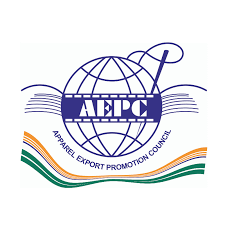
Hit by US tariffs: Indian apparel sector shifts focus to 40 new markets
NEW DELHI : India will launch targeted outreach campaigns in 40 major markets, including the UK, Japan, and South Korea, to expand its textile export footprint and offset the fallout from a punitive 50 per cent import tariff imposed by the United States, news agency PTI reported on Wednesday.
The outreach strategy comes as Indian exporters brace for a severe hit, with over $48 billion in trade exposed to the steep US tariffs, which took effect on August 27. The textiles and apparel sector, which exported $10.3 billion worth of goods to the US in 2024-25, ranks among the worst affected, according to Mithileshwar Thakur, Secretary General of the Apparel Export Promotion Council (AEPC).
“The apparel industry was reconciled to the 25 per cent reciprocal tariff announced by the USA,” said Thakur. “But, the additional burden of another 25 per cent tariff…has effectively driven the Indian apparel industry out of the US market.”
India’s overall textile and apparel sector, estimated at $179 billion in 2024-25, relies on $37 billion in exports. Despite a global textile import market of over $800 billion, India holds just 4.1 per cent of that share, ranking sixth globally.
The new 40-country outreach aims to expand that footprint in both traditional and emerging markets. These countries together account for $590 billion in textile and apparel imports, offering significant headroom for Indian exporters, who currently hold only about 5–6 per cent of that market.
In each of these countries, India will position itself as “a reliable supplier of quality, sustainable, and innovative textile products,” said a senior government official. The strategy will be led by Export Promotion Councils (EPCs) and Indian Missions abroad, with a focus on connecting key domestic textile clusters-like Surat, Panipat, Tirupur, and Bhadohi-to global demand.
EPCs will conduct market mapping, identify high-demand products, and anchor India’s presence in trade shows and exhibitions. They will also guide exporters on leveraging free trade agreements (FTAs), complying with sustainability norms, and obtaining certifications.
“FTAs and negotiations with several of these geographies will help make Indian exports competitive, and there is a huge potential for growth in these areas,” the official said.
Thakur stressed the urgency of government support to counter the US tariff impact: “We are intensifying our efforts towards market diversification…but it is not easy to recover the lost ground and regain market share, once buyers move away to other cost-competitive locations.”
He pointed to trade deals with the UK and EFTA countries as crucial opportunities to “control and contain the damage.”
